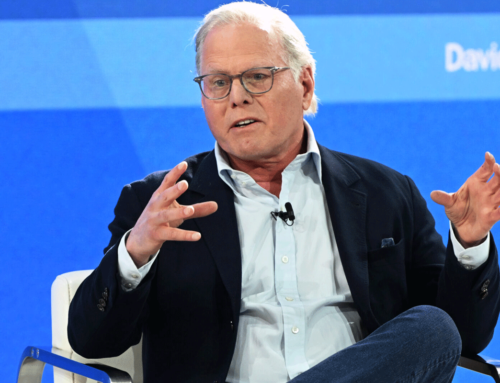Netflix’s Competitors: To Conceal or Not to Conceal Subscriber Numbers?
The recent announcement from the streaming giant to halt regular disclosure of its subscriber figures might signal another wave of disruption in the entertainment industry. At first glance, this move appears poised to challenge the conventional norms of transparency in SVOD (Subscription Video on Demand) businesses. If the trailblazer in the streaming arena sees no need to boast about its subscriber numbers, why should others reveal their comparatively modest user bases?
However, while imitating Netflix is a common trend among rival streamers, this particular decision may not be advisable for legacy media players. What works for Netflix, a company at the top of its game, might not necessarily benefit its major competitors.
Unlike other streaming services, Netflix’s stock performance is still heavily influenced by its subscriber numbers. The market often reacts to the platform’s quarterly additions, reflecting the significant role subscriber totals play in determining Netflix’s stock price.
The irony lies in the fact that while Wall Street’s heightened focus on SVOD financials stemmed from subscriber figures, it’s now the cessation of reporting those numbers that may bolster Netflix’s shareholders in the long term. Netflix’s leadership anticipates a potential slowdown or reversal in subscriber growth, especially with the expected decline in revenue from its crackdown on password-sharing. By ceasing to report subscriber numbers, the company aims to avoid investor panic when such circumstances arise. Although the market initially responded unfavorably to this news, sustained revenue and profit growth could mitigate investor concerns. Highlighting top-line figures could also streamline Netflix’s narrative amidst its diversification efforts, including an upcoming foray into video games and live events.
In essence, Netflix’s decision appears to be a well-thought-out strategic move. Rushing to emulate it would be unwise for its competitors.
Traditional media companies are still grappling with the pressure to expand their streaming services and demonstrate their long-term viability amid declining legacy businesses. While subscriber totals may no longer be the sole yardstick of streaming success, they remain pivotal metrics as media companies strive to minimize losses each quarter. For instance, Disney’s stock witnessed a significant drop last year following the revelation of a decline in Disney+ subscribers, despite noteworthy reductions in the company’s direct-to-consumer operating losses.
Ultimately, Netflix’s shift towards secrecy regarding subscriber numbers underscores its identity as a tech company with Hollywood aspirations. In the grand scheme of things, this move might propel Netflix closer to the echelons occupied by tech giants like Amazon and Apple, neither of which publicly discloses their streaming subscriber counts.
SOURCE: Variety
Share:
The recent announcement from the streaming giant to halt regular disclosure of its subscriber figures might signal another wave of disruption in the entertainment industry. At first glance, this move appears poised to challenge the conventional norms of transparency in SVOD (Subscription Video on Demand) businesses. If the trailblazer in the streaming arena sees no need to boast about its subscriber numbers, why should others reveal their comparatively modest user bases?
However, while imitating Netflix is a common trend among rival streamers, this particular decision may not be advisable for legacy media players. What works for Netflix, a company at the top of its game, might not necessarily benefit its major competitors.
Unlike other streaming services, Netflix’s stock performance is still heavily influenced by its subscriber numbers. The market often reacts to the platform’s quarterly additions, reflecting the significant role subscriber totals play in determining Netflix’s stock price.
The irony lies in the fact that while Wall Street’s heightened focus on SVOD financials stemmed from subscriber figures, it’s now the cessation of reporting those numbers that may bolster Netflix’s shareholders in the long term. Netflix’s leadership anticipates a potential slowdown or reversal in subscriber growth, especially with the expected decline in revenue from its crackdown on password-sharing. By ceasing to report subscriber numbers, the company aims to avoid investor panic when such circumstances arise. Although the market initially responded unfavorably to this news, sustained revenue and profit growth could mitigate investor concerns. Highlighting top-line figures could also streamline Netflix’s narrative amidst its diversification efforts, including an upcoming foray into video games and live events.
In essence, Netflix’s decision appears to be a well-thought-out strategic move. Rushing to emulate it would be unwise for its competitors.
Traditional media companies are still grappling with the pressure to expand their streaming services and demonstrate their long-term viability amid declining legacy businesses. While subscriber totals may no longer be the sole yardstick of streaming success, they remain pivotal metrics as media companies strive to minimize losses each quarter. For instance, Disney’s stock witnessed a significant drop last year following the revelation of a decline in Disney+ subscribers, despite noteworthy reductions in the company’s direct-to-consumer operating losses.
Ultimately, Netflix’s shift towards secrecy regarding subscriber numbers underscores its identity as a tech company with Hollywood aspirations. In the grand scheme of things, this move might propel Netflix closer to the echelons occupied by tech giants like Amazon and Apple, neither of which publicly discloses their streaming subscriber counts.
SOURCE: Variety











